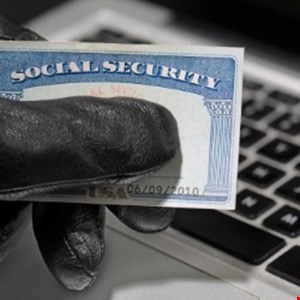- How vulnerable are undersea cables?
- Google's viral NotebookLM AI tool gets its own Android app - what you can do with it
- Uncensored AI Tool Raises Cybersecurity Alarms
- Accelerating Success: How Cisco and Partners Drive Cybersecurity Growth
- My favorite projector doubles as a gaming hub, and it's discounted at 25% off
A Third of #COVID19 Fraud Victims Go Hungry

Most US victims of pandemic-related identity fraud in 2020 still have not had their issues resolved, and a third (33%) claim they didn’t have enough money to buy food or pay for utilities last year as a result, according to a new report.
The Identity Theft Resource Center (ITRC) based its new 2021 Consumer Aftermath Report on interviews with 427 identity crime victims who contacted the non-profit before and during the crisis.
The FTC claimed that it received twice as many identity theft reports last year versus 2019, with those related to unemployment benefits hitting over 390,000 versus just 13,000 in 2019.
Three-quarters (75%) of these and other COVID-related fraud issues have yet to be resolved, according to the ITRC.
The impact has been catastrophic for many households: a quarter (24%) said they were denied unemployment benefits because someone applied using their identity; 40% were unable to pay routine monthly bills; and many went hungry.
Some 14% said they were evicted for non-payment of rent, and 8% have even considered suicide.
The challenges of resolving identity fraud go back long before the pandemic. Nearly two-fifths (37%) of pre-pandemic victims said their issues from 2019 have still not been sorted out as of May 2021.
Overall, while most victims lose less than $500, a fifth (21%) claimed to have been defrauded by over $20,000.
“While we have all adjusted to masks and social distancing during the COVID-19 pandemic, for victims of identity fraud, the pandemic has created an entirely new set of risks,” said John Breyault, National Consumers League vice president of public policy, telecommunications and fraud and an ITRC Board Member.
“It might be tempting to focus only on the considerable harm that identity fraud does to consumers. However, we shouldn’t lose sight of the costs to businesses due to lost productivity and lower morale as employees manage their recovery and to taxpayers as fraudsters raid unemployment insurance funds.”

